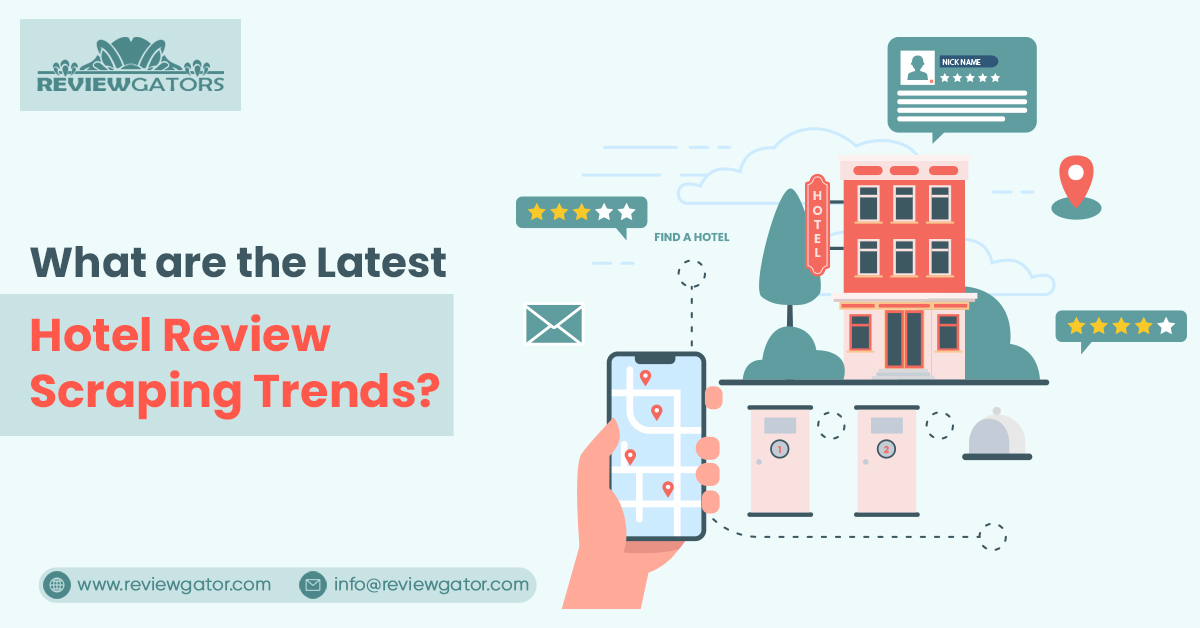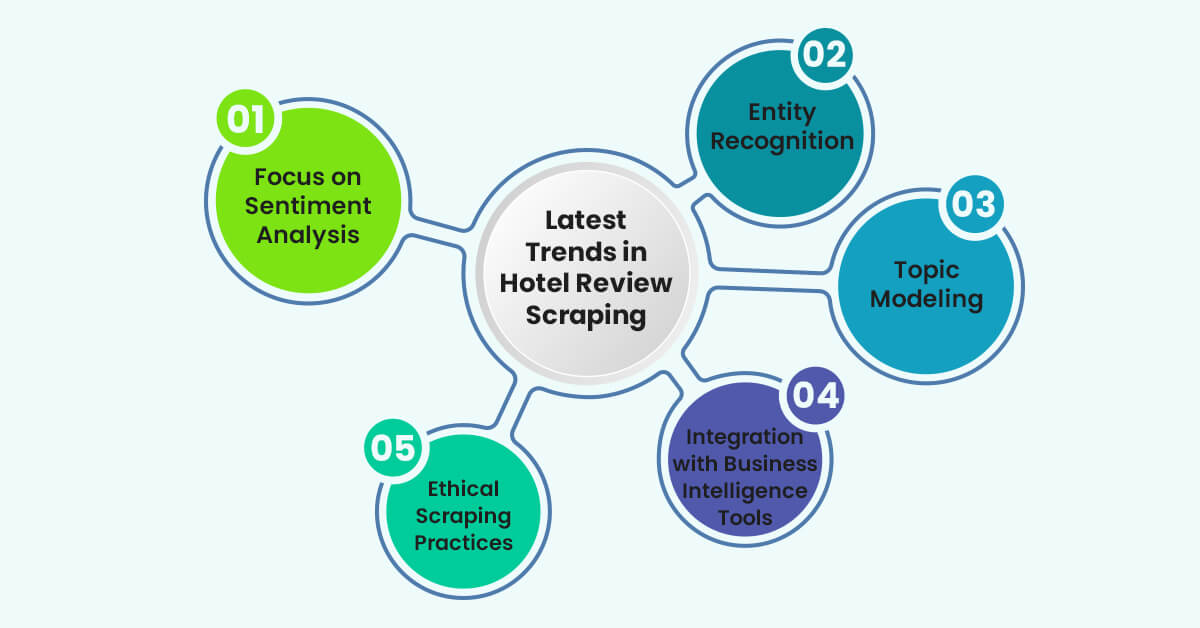
The reviews and ratings left by customers hold immense power in today’s world, especially in the hospitality and tourism industry. Travelers rely on other travelers’ experiences before making an informed decision about their stay. Hotels, on the other hand, leverage this wealth of data to improve their services, identify areas of improvement, and address guests’ needs, which ultimately enhances their offerings. This led to a growing trend in hotel review scraping, where data is extracted from online platforms to gain valuable insights. In this blog, we will explore the latest trends in hotel review scraping, exploring the techniques used, the benefits it offers, and the ethical considerations surrounding this practice.
What is Hotel Review Scraping?
Hotel review scraping involves using automated tools or scripts to extract valuable data from online review platforms. A Hotel Review API (Application Programming Interface) acts as a bridge between your system and these platforms, such as TripAdvisor, Booking.com, and Google My Business.
Types of Hotel Review APIs
There are two main types of online review APIs relevant for different purposes:
Guest Review APIs
Property owners or managers typically use these online review APIs to access and manage reviews left on their listings on booking platforms. They allow functionalities like:
- Viewing all guest reviews left on the platform
- Responding directly to guest reviews
- Identifying trends and sentiment within reviews (may require additional analysis)
Hotel Data & Review APIs
These hotel review APIs provide access to a wider range of hotel data, including reviews, from various sources. They cater to businesses or individuals who need to collect and analyze hotel review data for various purposes. Here’s a breakdown of functionalities you might find:
- Review Data: Access reviews from various platforms (TripAdvisor, Booking.com, etc.) for a wider perspective.
- Sentiment Analysis: Many hotel review APIs offer sentiment analysis to understand the overall mood of the reviews (positive, negative, neutral).
- Filtering & Sorting: Filter reviews by date, rating, keyword, or other criteria.
- Data Aggregation: Combine review data with other hotel information (e.g., pricing, amenities) for comprehensive analysis.
Benefits of Hotel Review Scraping
By scraping this information, hotels can learn a lot about what guests think, find common problems, and prioritize areas for improvement.
- Uncover Guest Sentiment: Reviews are more than just stars. Scraping hotel reviews helps us understand why guests feel a certain way, and find out what they like or don’t like about their experience.
- Identify Trends and Patterns: Analyse large volumes of reviews to find common topics. Are people talking about dirty spaces, too much noise, or unfriendly staff? Scraping helps determine what needs fixing.
- Benchmark Against Competitors: Gather reviews from different places to see how your hotel compares to others. Look at what they’re good at and where they need improvement to improve your plans.
- Improve Guest Experience: Look at what people say in reviews to help make choices that improve guests’ feelings. This could mean making breakfast better or helping staff learn more.
- Monitor Brand Reputation: Monitor what people say about your hotel online. This will help you better manage your reputation and deal with any issues before they become big problems.
- Pricing Strategy: Understand what guests want and change prices by looking at what other businesses are doing and what people are saying about them.
- Content Creation: Utilize positive reviews in marketing materials and highlight guest experiences.
Latest Trends in Hotel Review Scraping

Scraping hotel reviews is constantly evolving. Here are some of the hottest trends shaping the industry:
Focus on Sentiment Analysis
Before, people just looked at how many stars a review got. Now, scraping hotel review tools use smart technologies like Artificial Intelligence (AI) to figure out whether reviews are positive, negative, or neutral.
Entity Recognition
Advanced tools can find particular things in reviews, such as facilities, staff names, or types of rooms. This helps to analyze guest feedback in great detail. This enables highly granular analysis of guest feedback, pinpointing areas for improvement.
Topic Modeling
This technique uncovers hidden themes within large datasets of reviews. It can reveal unexpected areas of guest concern or satisfaction, like noise levels from a nearby construction project or positive mentions of a recently implemented recycling program. Imagine discovering unexpected areas of guest frustration (like slow check-in times) or hidden gems your hotel offers (like exceptional housekeeping) that guests love.
Integration with Business Intelligence Tools
Scraping data is becoming more integrated with business intelligence (BI) platforms. This helps hotels put together reviews with other information like booking trends to understand what guests do. Imagine correlating positive reviews of your spa with increased spa bookings, revealing a clear connection.
Ethical Scraping Practices
As scraping is getting smarter, it’s super important to be ethical. Following website rules and paying attention to robots.txt files is essential. These rules tell us how to use automated tools on websites. Scraping responsibly means collecting data smoothly without causing problems for servers.
Continue reading https://www.reviewgators.com/what-are-the-latest-hotel-review-scraping-trends.php